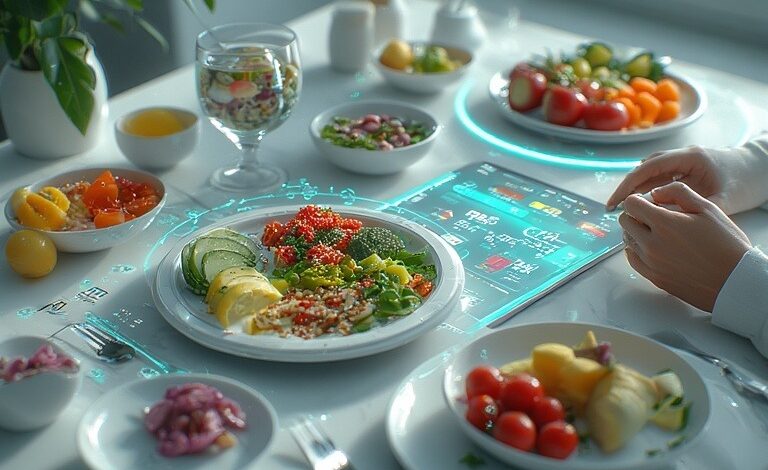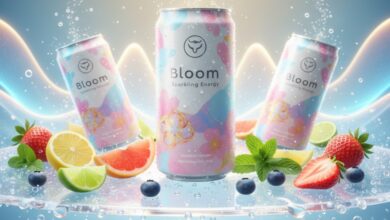The Rise of Smart Nutrition: Eating with Science in 2025

In today’s fast-paced world, food is no longer just about taste and tradition—it’s about technology, science, and personalization. Smart Nutrition has emerged as a revolutionary trend in 2025, combining advanced research with digital innovation to transform the way we eat. From AI-powered meal planning to DNA-based diets, eating habits are becoming more intelligent, more efficient, and more personalized than ever before. But is this rise in scientific eating truly better than conventional nutrition? Let’s review and compare.
🔬 Traditional Nutrition vs. Smart Nutrition
For decades, traditional nutrition was built around general dietary guidelines: balanced plates, calorie counting, and the food pyramid. While effective to an extent, these recommendations often ignored individual needs.
Enter Smart Nutrition. Unlike conventional methods, it uses data-driven insights, genetic testing, wearable tech, and real-time health tracking to create personalized nutrition strategies. Imagine a diet plan not designed for “everyone,” but tailored to your DNA, metabolism, and lifestyle.
In comparison:
- Traditional diets = One-size-fits-all.
- Smart diets = Tailor-made, tech-driven, and adaptive.
📱 Technology Meets Nutrition
The biggest driver of Smart Nutrition in 2025 is technology integration. AI-powered apps now analyze everything—from your sleep cycle to your gut microbiome—to suggest what you should eat.
- Smart wearables track hydration, nutrient absorption, and blood sugar in real time.
- AI meal planners recommend foods based on your mood, activity level, and upcoming schedule.
- DNA-based nutrition tests predict food sensitivities and optimal diet types.
This tech-driven approach is giving consumers more control and accuracy in food choices, making nutrition feel less like a guessing game and more like a science-backed lifestyle.
🥦 Personalized Nutrition: A Game Changer
The strongest appeal of Smart Nutrition lies in personalization. No two bodies are the same, and now diets reflect that truth. For example:
- A fitness enthusiast can get a protein-optimized plan for muscle growth.
- Someone with diabetes can follow a blood-sugar-friendly diet with real-time monitoring.
- Vegans can get nutrient-rich suggestions to fill common deficiencies.
Compared to generic “eat more vegetables” advice, Smart Nutrition provides actionable, specific, and measurable guidance.
🌍 Sustainability and Smart Eating
Smart Nutrition isn’t just about the individual—it’s also about the planet. In 2025, eco-conscious diets are being powered by science:
- AI tools recommend low-carbon-footprint meals.
- Lab-grown proteins and plant-based alternatives are more mainstream.
- Food waste tracking apps help households reduce unnecessary consumption.
Traditional nutrition rarely addressed sustainability, but Smart Nutrition integrates it seamlessly into daily life, making eating healthier for both people and the planet.
⚖️ Pros and Cons: Is Smart Nutrition Better?
Like any innovation, Smart Nutrition has its advantages and challenges.
Pros:
✅ Highly personalized and adaptive
✅ Backed by real-time data and science
✅ Promotes sustainability
✅ Can prevent lifestyle diseases through early intervention
Cons:
❌ Can be expensive (DNA tests, wearables, premium apps)
❌ Requires digital literacy and access to technology
❌ Data privacy concerns (health tracking and AI platforms)
Compared to traditional nutrition, Smart Nutrition feels futuristic, but not everyone can access it easily yet.
🌟 Final Review: Eating with Science in 2025
The rise of Smart Nutrition represents a shift from guesswork to precision in our diets. While traditional nutrition laid the foundation for healthy eating, Smart Nutrition has upgraded it with science, technology, and personalization.
In 2025, we’re no longer just “eating healthy”—we’re eating intelligently, where every bite is supported by data. For some, it’s a luxury; for others, it’s becoming a necessity. The future of food is not just about what we eat, but how smartly we choose it.
👉 Verdict: Smart Nutrition is not replacing traditional wisdom but enhancing it. If traditional nutrition was a map, Smart Nutrition is Google Maps with live traffic updates—personalized, efficient, and always evolving.




